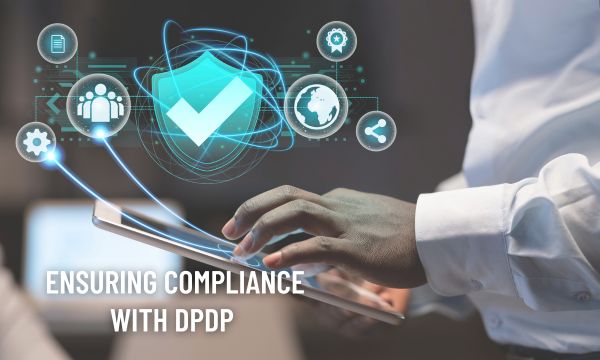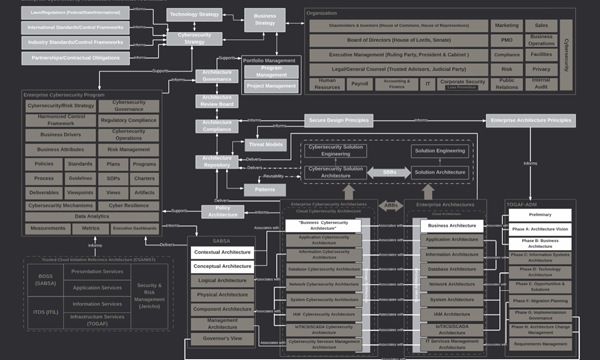
In an era defined by unprecedented technological advancement and digital interconnectedness, the protection of personal data has emerged as a paramount concern for individuals, businesses, and governments alike. As the custodians of vast troves of sensitive information, organisations find themselves at the nexus of this data-driven revolution, grappling with the dual imperatives of innovation and responsibility. At the heart of this paradigm shift lies the Data Privacy and Personal Data Protection (DPDP) Act, a groundbreaking legislation that heralds a new era of accountability, transparency, and ethical stewardship in India's digital landscape.
The DPDP Act represents a seminal milestone in India's journey towards data privacy compliance, enshrining principles of individual autonomy, data sovereignty, and legal integrity at its core. Against the backdrop of rapid technological evolution and evolving consumer expectations, the imperative to ensure compliance with the DPDP Act has never been more pressing or profound. As organisations navigate the complexities of data privacy regulation, they confront a myriad of challenges and opportunities, each laden with implications for trust, security, and corporate citizenship.
Here's why ensuring compliance with the DPDP Act is not just a legal requirement but a strategic imperative for businesses:
-
Preservation of Trust: Trust forms the bedrock of any successful business relationship. Compliance with the DPDP Act signals to customers, partners, and stakeholders that an organisation values their privacy rights and is committed to safeguarding their personal data. By adhering to stringent data privacy standards, organisations foster trust and confidence, enhancing their reputation and credibility in the eyes of the public.
-
Mitigation of Legal Risks: Non-compliance with data privacy regulations carries significant legal risks and consequences. The DPDP Act mandates strict compliance requirements, including the implementation of robust data protection measures, the provision of transparent data processing practices, and the facilitation of data subject rights. Failure to comply with these requirements can result in hefty fines, legal sanctions, and reputational damage, posing existential threats to businesses of all sizes.
-
Protection Against Data Breaches: Data breaches have become an ever-present threat in today's digital landscape, with cybercriminals constantly seeking to exploit vulnerabilities in data security defences. Compliance with the DPDP Act necessitates the implementation of comprehensive data security measures, such as encryption, access controls, and incident response protocols. By fortifying their defences against data breaches, organisations can minimise the risk of costly data breaches and safeguard the sensitive information entrusted to them by customers and employees.
-
Enhancement of Customer Relationships: In an age of heightened privacy awareness, customers are increasingly discerning about how their personal data is collected, processed, and utilised. By demonstrating a commitment to data privacy compliance, organisations can differentiate themselves in the marketplace, attracting discerning consumers who prioritise privacy-conscious brands. By empowering customers with greater control over their personal data and respecting their privacy preferences, organisations can forge stronger and more meaningful relationships with their customer base.
-
Global Competitiveness: In an interconnected global economy, data privacy compliance has emerged as a key differentiator for businesses seeking to compete on the international stage. As data protection regulations proliferate worldwide, organisations that proactively embrace data privacy compliance stand to gain a competitive advantage in the global marketplace. By adhering to global best practices and standards, organisations can position themselves as trustworthy stewards of personal data, thereby enhancing their appeal to customers and partners across borders.
By embracing data privacy compliance as a core tenet of their operations, organisations can navigate the complexities of the digital age with confidence, resilience, and ethical integrity, laying the foundation for sustained success in an increasingly data-centric world.
Ensuring compliance with the Data Privacy and Personal Data Protection (DPDP) Act in India is critical for organisations to safeguard the privacy and security of personal data. Here's how organisations can ensure compliance with the DPDP Act:
-
Understand the Requirements: Begin by thoroughly understanding the requirements and provisions outlined in the DPDP Act. Familiarise yourself with the definitions, principles, rights of data subjects, obligations of data processors and controllers, and the penalties for non-compliance.
-
Conduct a Gap Assessment: Assess your organisation's current data privacy policies, procedures, and practices against the requirements of the DPDP Act. Identify any gaps or areas where your organisation may not be compliant with the law.
-
Develop Data Privacy Policies and Procedures: Develop comprehensive data privacy policies and procedures that align with the requirements of the DPDP Act. Clearly outline how personal data will be collected, processed, stored, and protected within your organisation. Ensure that these policies and procedures are communicated to all employees and stakeholders.
-
Implement Data Protection Measures: Implement robust data protection measures to safeguard personal data against unauthorised access, disclosure, alteration, and destruction. This may include encryption, access controls, data minimization, and regular security assessments.
-
Obtain Consent Appropriately: Ensure that you obtain explicit consent from individuals before collecting, processing, or sharing their personal data. Clearly communicate the purposes for which data is being collected and how it will be used. Provide individuals with the option to withdraw their consent at any time.
-
Respect Data Subject Rights: Respect the rights of data subjects as outlined in the DPDP Act, including the right to access, rectify, erase, restrict processing, and data portability. Establish procedures for handling data subject requests and respond to such requests in a timely manner.
-
Train Employees: Provide regular training and awareness programs to employees on data privacy best practices and their responsibilities under the DPDP Act. Ensure that employees understand the importance of protecting personal data and the consequences of non-compliance.
-
Monitor Compliance: Implement mechanisms for monitoring and enforcing compliance with the DPDP Act within your organisation. Conduct regular audits, assessments, and reviews to ensure that data privacy policies and procedures are being followed effectively.
-
Establish Data Breach Response Plan: Develop a comprehensive data breach response plan to effectively respond to and mitigate data breaches. Establish clear communication channels, escalation procedures, and notification requirements in the event of a data breach.
-
Stay Updated and Adapt: Stay informed about changes to data privacy regulations and guidelines issued by regulatory authorities. Continuously monitor developments in the field of data privacy and adapt your policies, procedures, and practices accordingly to ensure ongoing compliance with the DPDP Act.
By following these steps, organisations can demonstrate their commitment to data privacy and ensure compliance with the DPDP Act, thereby building trust with their customers and stakeholders while mitigating the risks associated with non-compliance.
Comments
No Comments Found.
Search Here



